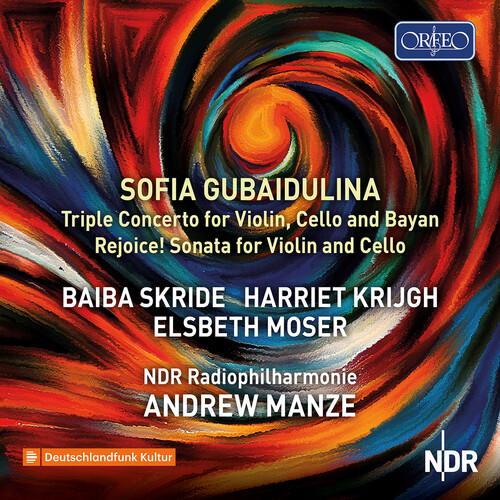Show results for
Deals
- 4K Ultra HD Sale
- Action Sale
- Alternative Rock Sale
- Anime sale
- Award Winners Sale
- Bear Family Sale
- Blu ray Sale
- Blues on Sale
- British Sale
- Classical Music Sale
- Comedy Music Sale
- Comedy Sale
- Country Sale
- Criterion Sale
- Electronic Music sale
- Fantasy Film and TV
- Folk Music Sale
- Hard Rock and Metal Sale
- Horror Sci fi Sale
- Jazz Sale
- Kids and Family Music sale
- Kids and Family Sale
- Metal Sale
- Music Video Sale
- Musicals on Sale
- Mystery Sale
- Naxos Label Sale
- Page to Screen Sale
- Paramount Sale
- Pop and Power Pop
- Rap and Hip Hop Sale
- Reggae Sale
- Rock and Pop Sale
- Rock Legends
- Soul Music Sale
- TV Sale
- TV Sale
- Vinyl on Sale
- War Films and Westerns on Sale

Mozart: Triple Concerto for Violin, Cello & Bayan; Rejoice!
- Format: CD
- Release Date: 9/6/2024

Mozart: Triple Concerto for Violin, Cello & Bayan; Rejoice!
- Format: CD
- Release Date: 9/6/2024
- Composers: Wolfgang Amadeus Mozart
- Label: Orfeo
- UPC: 4011790230023
- Item #: 2655009X
- Genre: Classical Artists
- Release Date: 9/6/2024
CD
Price: $19.94

Get it between
Thu. Apr 24 - Fri. May 9
Deliver to
Product Notes
One of Gubaidulina's special merits is that at the end of the 1970s she discovered the sound characteristics and expressive possibilities of the bayan, a button accordion that had previously only been popular as a folk music instrument in Russia, and established it as an instrument of contemporary music through numerous inspired compositions. She was supported and accompanied in this endeavour by bayan performers such as Friedrich Lips in Moscow and the Swiss Elsbeth Moser, who taught in Hanover. The creation of the Triple Concerto for violin, cello and bayan can be traced back to a suggestion by Elsbeth Moser.
For the five movements of the duo composition Rejoice! For violin and cello (1981), Gubaidulina chose various quotations from the writings of the Ukrainian 'travelling philosopher' Grigori Skoworoda (1722-1794), who called for poverty and self-deepening as a prerequisite for finding God. The composer explained: "The theme of my work is the metaphorical representation of the transition to another reality, expressed through the juxtaposition of normal sound and harmonics." Due to the unmistakable religious references it was not possible to premiere the work until 1988 and the premiere took place in Finland.
